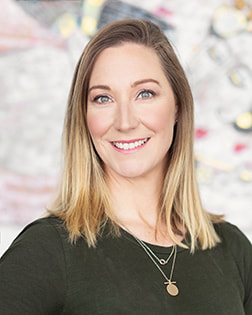About Dr Emily Horwill(she/her)
BASc (Hons)., DPsych (Clin/Health) Clinical and Health Psychologist Hours Wednesday - evening Friday - am, pm IN-PERSON AND TELEHEALTH
|
Background
After completing undergraduate studies in both Nursing and Psychology, Emily worked as a paediatric nurse for several years (in Australia and abroad) before completing her post graduate training in Clinical and Health Psychology. As a paediatric nurse, Emily worked closely with both children and parents and found this work to be very rewarding. Emily later completed her Post Graduate studies in Psychology and finished her Doctorate degree in 2009. Her Doctorate research was in the area of perinatal mental health (specifically, pregnancy-related depression). As part of her clinical training, she completed an internship at the Parent Infant Research Institute at the Austin Hospital, Melbourne, and this, combined with her past experience working with parents and children, and her area of research, sparked an interest in working in the area of Perinatal Psychology.
Emily has worked in a range of settings - including hospital-based practice, the tertiary education sector and private practice. She has offered psychological assessment, treatment and support to a wide range of people and for a broad range of reasons, but has always been drawn to working with women and families who are seeking support relating to conception, pregnancy, and parenting. She has provided individual and group-based treatments for women and their families experiencing ante and postnatal depression and anxiety, as well as supporting individuals with a range of issues including reproductive decision making, adjustment to parenting, fertility difficulties, and reproductive loss and grief.
Doctoral Research
Emily coordinated a longitudinal research project through Murdoch Children’s Research Institute that followed participants from adolescence through to adulthood. The study then specifically followed participants during the ante and postnatal period with a focus of understanding how the health of one generation may be related to the next. Emily used this data to complete her Doctoral research that investigated pregnancy-related depression.
Current Practice
Emily currently consults in Warrnambool, regional Victoria, but is available via Telehealth for clients across Victoria. She works with women and their families experiencing perinatal depression, anxiety, stress, and adjustment difficulties; early parenting, bonding and attachment difficulties; conception and fertility difficulties (including navigating assisted reproduction and IVF); relationship difficulties; and reproductive grief and loss.
Approach to Therapy
Emily provides both short and long term individual support. Her approach is warm, client centred and collaborative and she provides a reflective and non-judgmental space for clients to work through difficulties. She draws on a variety of therapeutic approaches in her work with clients based on their needs. She incorporates Cognitive Behavioural Therapy (CBT), Acceptance and Commitment Therapy (ACT), Mindfulness, and Schema Therapy. Emily also draws on attachment theory and psychodynamic approaches in her work with individuals.
After completing undergraduate studies in both Nursing and Psychology, Emily worked as a paediatric nurse for several years (in Australia and abroad) before completing her post graduate training in Clinical and Health Psychology. As a paediatric nurse, Emily worked closely with both children and parents and found this work to be very rewarding. Emily later completed her Post Graduate studies in Psychology and finished her Doctorate degree in 2009. Her Doctorate research was in the area of perinatal mental health (specifically, pregnancy-related depression). As part of her clinical training, she completed an internship at the Parent Infant Research Institute at the Austin Hospital, Melbourne, and this, combined with her past experience working with parents and children, and her area of research, sparked an interest in working in the area of Perinatal Psychology.
Emily has worked in a range of settings - including hospital-based practice, the tertiary education sector and private practice. She has offered psychological assessment, treatment and support to a wide range of people and for a broad range of reasons, but has always been drawn to working with women and families who are seeking support relating to conception, pregnancy, and parenting. She has provided individual and group-based treatments for women and their families experiencing ante and postnatal depression and anxiety, as well as supporting individuals with a range of issues including reproductive decision making, adjustment to parenting, fertility difficulties, and reproductive loss and grief.
Doctoral Research
Emily coordinated a longitudinal research project through Murdoch Children’s Research Institute that followed participants from adolescence through to adulthood. The study then specifically followed participants during the ante and postnatal period with a focus of understanding how the health of one generation may be related to the next. Emily used this data to complete her Doctoral research that investigated pregnancy-related depression.
Current Practice
Emily currently consults in Warrnambool, regional Victoria, but is available via Telehealth for clients across Victoria. She works with women and their families experiencing perinatal depression, anxiety, stress, and adjustment difficulties; early parenting, bonding and attachment difficulties; conception and fertility difficulties (including navigating assisted reproduction and IVF); relationship difficulties; and reproductive grief and loss.
Approach to Therapy
Emily provides both short and long term individual support. Her approach is warm, client centred and collaborative and she provides a reflective and non-judgmental space for clients to work through difficulties. She draws on a variety of therapeutic approaches in her work with clients based on their needs. She incorporates Cognitive Behavioural Therapy (CBT), Acceptance and Commitment Therapy (ACT), Mindfulness, and Schema Therapy. Emily also draws on attachment theory and psychodynamic approaches in her work with individuals.



